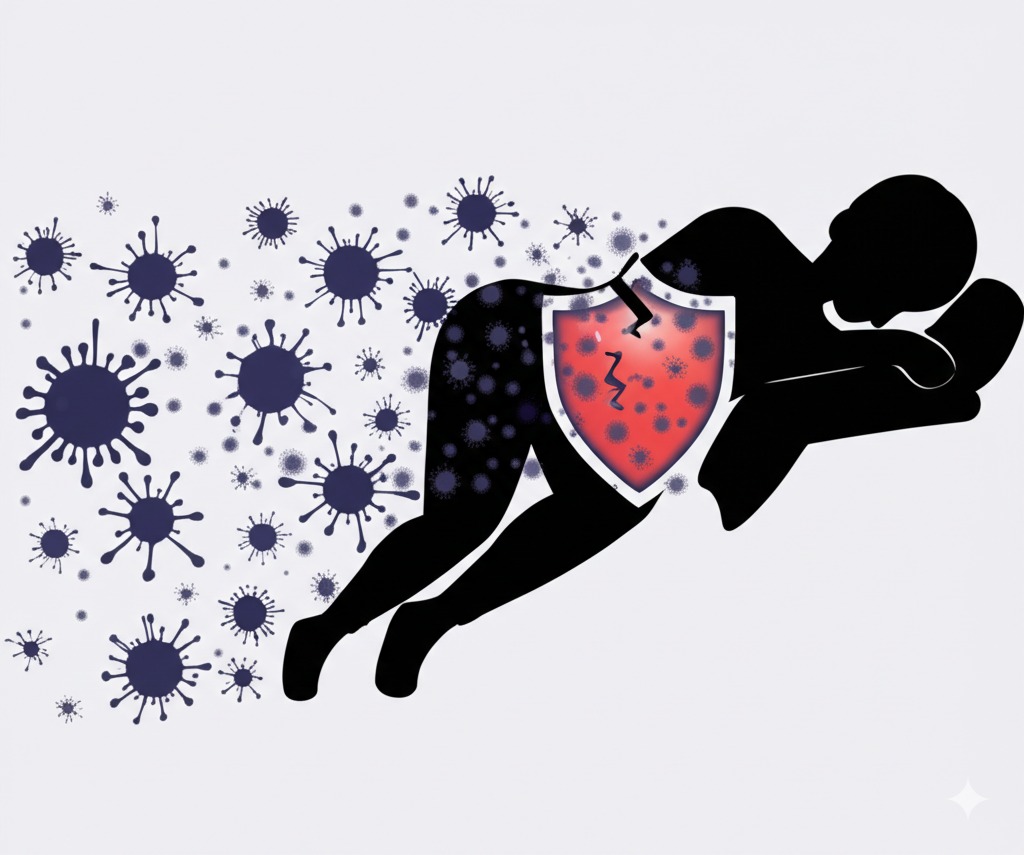More Than Just Tired: The Link Between Sleep Deprivation and Common Illnesses

Feeling run down after a few nights of poor sleep? It's not just in your head. Chronic sleep deprivation does more than make you groggy; it weakens your body's defenses and increases your susceptibility to a range of common illnesses, from the common cold to more serious chronic conditions.
Weakening the Defenses: Sleep and the Immune System
Your immune system is your body's army against pathogens like viruses and bacteria. Sleep plays a crucial role in keeping this army strong and effective. During sleep, your immune system releases proteins called cytokines, some of which help promote sleep. Certain cytokines need to increase when you have an infection or inflammation, or when you're under stress.
Sleep deprivation disrupts this process:
- Reduced Cytokine Production: Lack of sleep decreases the production of protective cytokines.
- Fewer Infection-Fighting Cells: Levels of infection-fighting antibodies and cells (like T-cells) are reduced with sleep loss.
- Increased Inflammation: Paradoxically, while some immune responses are dampened, chronic sleep loss can increase levels of inflammatory markers, contributing to long-term health issues.
Increased Risk of Colds and Flu
Studies have shown a direct link between sleep duration and susceptibility to the common cold. People who consistently sleep less than 6 or 7 hours a night are significantly more likely to catch a cold when exposed to the virus compared to those who sleep 8 hours or more. Your immune system simply isn't as prepared to fight off the infection without adequate rest. Similarly, sleep deprivation can reduce the effectiveness of vaccines, like the flu shot, as your body may not produce as strong an antibody response.
Links to Chronic Health Conditions
The impact of poor sleep extends beyond acute infections. Chronic sleep deprivation is increasingly recognized as a risk factor for several major health problems:
- Cardiovascular Disease: Sleep loss is linked to higher blood pressure, inflammation, and an increased risk of heart attack and stroke.
- Diabetes: Insufficient sleep affects how your body processes glucose, increasing the risk of developing type 2 diabetes.
- Obesity: Sleep deprivation impacts appetite-regulating hormones (ghrelin and leptin), often leading to increased hunger and weight gain.
- Mental Health Disorders: Poor sleep is strongly associated with depression, anxiety, and other mood disorders.
Prioritizing Sleep for Better Health
Protecting your sleep is protecting your health. Making sleep a priority is essential for a robust immune system and reducing your risk of illness.
- Aim for 7-9 hours of quality sleep consistently.
- Practice good sleep hygiene (consistent schedule, dark/quiet/cool room, relaxing routine).
- Manage stress through healthy coping mechanisms.
- Seek medical advice if you consistently struggle with sleep or suspect an underlying sleep disorder.
Don't underestimate the power of sleep. It's a vital biological process that directly impacts your immune function and overall health. By making sufficient, quality sleep a priority, you invest in your body's ability to stay healthy and fight off illness.



